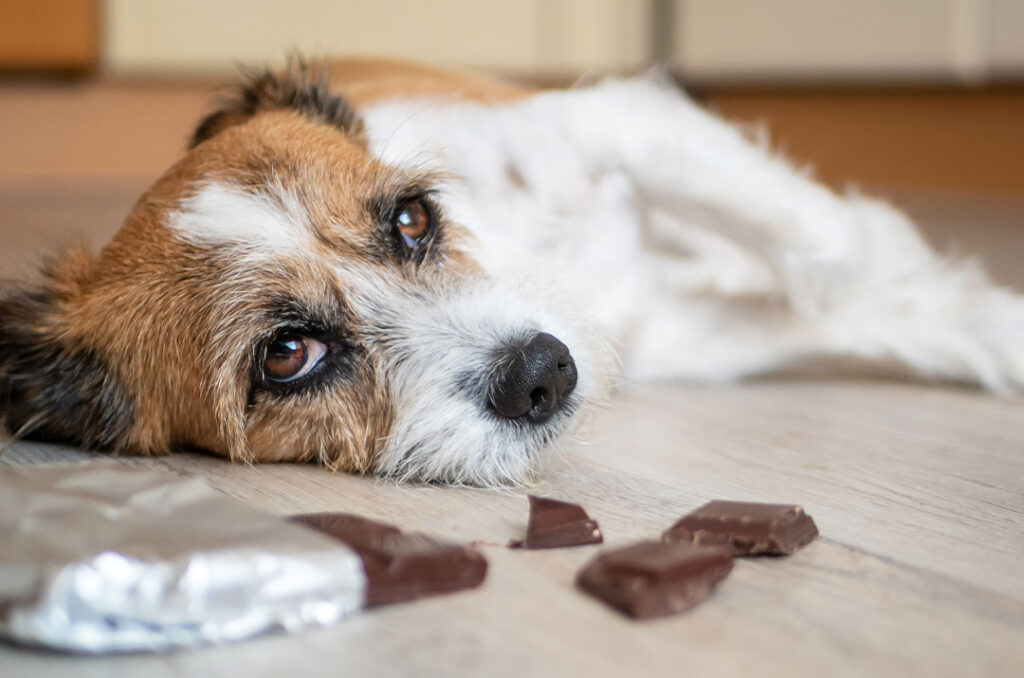
As responsible pet owners, our furry companions’ well-being is our top priority. While dogs have a curious nature, it’s essential to be aware of the household toxins that can pose a serious threat to their health. Join us as we explore some common household items that can be hazardous to our beloved pets and learn how to keep them safe and sound!
Chocolate: A Serious Canine Culprit
We begin with the infamous chocolate, a treat we humans adore but one that dogs should avoid at all costs. Chocolate contains theobromine and caffeine, which can lead to symptoms ranging from mild upset stomachs to severe toxicity. Instead of sharing your chocolatey indulgence, treat your pup with dog-friendly delights that won’t lead to any emergency vet visits!
Xylitol: The Sweet Deception
Xylitol, commonly found in sugar-free gum, candies, and some baked goods, might be sugar-free bliss for us, but it can be fatal for dogs. Even small amounts can cause a rapid insulin release, leading to hypoglycemia and potential liver failure. Ensure all xylitol-containing products are safely out of your pet’s reach.
Macadamia Nuts: A Nibble of Trouble
While we enjoy macadamia nuts as a tasty snack, these innocent-looking nuts can wreak havoc on our canine companions. Macadamia nuts can cause weakness, tremors, and even temporary paralysis in dogs. Keep all nuts, especially macadamia nuts, well out of paws’ reach.
Grapes and Raisins: A Serious Concern
Grapes and raisins might seem like healthy snacks for us, but for dogs, they pose a significant health risk. Ingesting these fruits can lead to kidney failure in our four-legged friends. Be cautious with your fruit bowls, and store them safely away from your pets.
Onions and Garlic: Foul Culprits
Onions and garlic are common ingredients in our cooking, but they contain compounds that can damage a dog’s red blood cells, leading to anemia. Keep your culinary creations safe by ensuring your pup stays away from these pungent ingredients.
Alcohol and Caffeine: No Sips for Pups
Alcohol and caffeine can have similar effects on dogs as they do on humans, but their smaller size makes them far more susceptible to toxicity. Keep alcoholic beverages and caffeinated drinks away from your pets, and always make sure they have access to fresh water.
Raw Yeast Dough: A Rising Concern
Raw yeast dough may seem like a harmless ball of goo, but inside your dog’s stomach, it can expand and produce alcohol, leading to potentially life-threatening conditions. Avoid any dough-related disasters by keeping it away from inquisitive noses.
Raw or Undercooked Meat: A Matter of Digestion
While dogs are carnivores, they should only consume meat that is thoroughly cooked. Raw or undercooked meat can contain harmful bacteria that may lead to food poisoning. Stick to the cooked variety when treating your pup to some meaty goodness.
As we journey through this guide, it’s clear that household toxins are no laughing matter when it comes to our canine friends. Ensuring a safe environment for our pets involves awareness, preventive measures, and responsible pet ownership. By being mindful of these potential hazards, we can create a happy, healthy, and toxin-free home for our beloved four-legged companions. Let’s put their safety first, so they can enjoy a life full of love, care, and endless tail wags!

